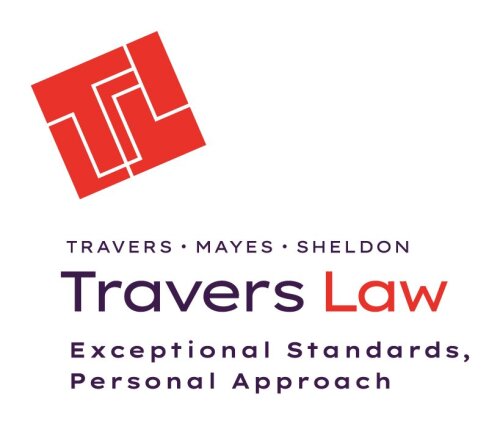Best Lawsuits & Disputes Lawyers in Waterloo
Share your needs with us, get contacted by law firms.
Free. Takes 2 min.
List of the best lawyers in Waterloo, Canada
Canada Lawsuits & Disputes Legal Articles
Browse our 1 legal article about Lawsuits & Disputes in Canada written by expert lawyers.
- Small Claims Court in Ontario Canada - Guide & Process FAQ
- The financial limit for filing a lawsuit in Ontario Small Claims Court is $35,000 CAD, excluding interest and court costs. Plaintiffs generally have exactly two years from the date the dispute arose to file their claim under the Ontario Limitations Act. Winning a judgment does not mean the court will... Read more →
About Lawsuits & Disputes Law in Waterloo, Canada
Lawsuits and disputes in Waterloo, Ontario, are governed by Canadian law and the rules of Ontario’s civil justice system. They generally involve conflicts between individuals, businesses, or organizations that cannot be resolved informally, so one party seeks assistance from the court system to enforce a right or resolve a claim. Waterloo, as part of the Waterloo Region and Ontario, follows provincial laws and procedures for both minor (Small Claims Court) and larger (Superior Court of Justice) civil disputes. Common areas include contract disagreements, property disputes, landlord-tenant issues, and personal injury claims.
Why You May Need a Lawyer
You may need a lawyer specializing in lawsuits and disputes if you find yourself facing or considering legal action in situations such as:
- Breach of contract with a business or individual
- Landlord-tenant disagreements over leases, damages, or evictions
- Property boundary or ownership issues
- Personal injury cases, such as car accidents or slip-and-fall incidents
- Employment disputes, including wrongful termination or unpaid wages
- Defamation, libel, or slander claims
- Consumer rights or product liability issues
- Unresolved debts or unpaid bills
A lawyer can help you understand your rights, evaluate your case, attempt to negotiate a settlement, or represent you in court. Legal procedures and strict timelines mean professional guidance is highly beneficial.
Local Laws Overview
Key aspects of lawsuits and dispute law in Waterloo include:
- Small Claims Court: Handles disputes up to $35,000, including contract disputes, property damage, and unpaid debts. The process is designed for speed and simplicity but still follows formal legal procedures.
- Superior Court of Justice: Manages cases above $35,000 or those that involve complex issues beyond the scope of Small Claims.
- Mediation and Alternative Dispute Resolution (ADR): Many civil matters are encouraged or required to try mediation before proceeding to trial. The Ontario Mandatory Mediation Program may apply in some cases.
- Limitation Periods: Most civil lawsuits must be started within two years of the date you became aware of the issue. Missing this deadline can result in losing your right to sue.
- Costs & Fees: Court filing fees apply. In Ontario, the unsuccessful party may be ordered to pay some of the winning party's legal costs.
- Local Rules: Courts in the Waterloo region operate under specific procedures and schedules. It’s important to review local practice directions for the Kitchener/Waterloo courthouse.
Frequently Asked Questions
What types of legal disputes can be handled in Small Claims Court in Waterloo?
Small Claims Court covers civil matters involving money or property valued up to $35,000. Common cases include unpaid invoices, contract issues, and some property damages.
How long do I have to start a lawsuit in Waterloo?
Most lawsuits must be initiated within two years from the date you discovered the issue. Exceptions can apply, so it’s important to consult a lawyer promptly.
Do I need a lawyer to go to court?
While you are not required to hire a lawyer in Waterloo, legal representation is highly recommended for navigating complex rules, procedures, and evidence requirements.
What if I cannot afford a lawyer?
Legal Aid Ontario may provide assistance for certain cases. Some lawyers also offer payment plans or initial consultations at a reduced rate.
How does mediation work in Waterloo?
Mediation is a process where a neutral third party helps disputing parties reach a mutually agreeable solution. In some cases, mediation is mandatory before a court hearing.
What should I bring to my first meeting with a lawyer?
Bring all relevant documents, such as contracts, emails, letters, court papers, photos, and a timeline of events. This helps your lawyer assess your case efficiently.
Can I recover my legal costs if I win my case?
Courts may order the losing party to pay some of the winner’s legal costs, but rarely the full amount. The amount recovered depends on case complexity and court discretion.
What is the difference between Small Claims Court and Superior Court?
Small Claims Court deals with lower-value, less complex cases (up to $35,000). Superior Court handles higher-value or more complex cases and follows more formal procedures.
How long do lawsuits typically take in Waterloo?
The length of time varies depending on the case's complexity, court scheduling, and whether the case settles early. Simple Small Claims matters may resolve in months, while complex Superior Court cases may take years.
Can I settle my dispute out of court?
Yes. Many disputes are resolved through negotiation or mediation without proceeding to a trial. Courts often encourage parties to settle before a full hearing.
Additional Resources
- Ontario Ministry of the Attorney General - Provides information on court processes, Small Claims Court, and forms.
- Legal Aid Ontario - Offers legal services for eligible individuals who cannot afford a lawyer.
- Law Society of Ontario - Offers a directory of licensed lawyers and resources on choosing legal representation.
- Kitchener/Waterloo Courthouse - For court locations, scheduling, and filing procedures.
- Community Legal Services of Waterloo Region - May offer advice and referrals for local residents.
- Steps to Justice - Ontario’s online resource for clear legal information on civil disputes.
Next Steps
If you believe you are involved in a lawsuit or dispute, or are unsure of your rights:
- Collect and organize all documents and correspondence related to your situation.
- Consider contacting a local lawyer for an initial consultation to review your case and advise on your options.
- If affordability is a concern, inquire about Legal Aid Ontario or local community legal services.
- Explore mediation or negotiation as a possible first step before proceeding to formal court action.
- Be mindful of limitation periods to avoid losing your right to take legal action.
- Prepare a timeline of events and list potential witnesses or evidence that could support your position.
Taking prompt and informed action can help you protect your rights and increase the chances of a positive resolution in your lawsuit or dispute in Waterloo, Canada.
Lawzana helps you find the best lawyers and law firms in Waterloo through a curated and pre-screened list of qualified legal professionals. Our platform offers rankings and detailed profiles of attorneys and law firms, allowing you to compare based on practice areas, including Lawsuits & Disputes, experience, and client feedback.
Each profile includes a description of the firm's areas of practice, client reviews, team members and partners, year of establishment, spoken languages, office locations, contact information, social media presence, and any published articles or resources. Most firms on our platform speak English and are experienced in both local and international legal matters.
Get a quote from top-rated law firms in Waterloo, Canada — quickly, securely, and without unnecessary hassle.
Disclaimer:
The information provided on this page is for general informational purposes only and does not constitute legal advice. While we strive to ensure the accuracy and relevance of the content, legal information may change over time, and interpretations of the law can vary. You should always consult with a qualified legal professional for advice specific to your situation.
We disclaim all liability for actions taken or not taken based on the content of this page. If you believe any information is incorrect or outdated, please contact us, and we will review and update it where appropriate.
Browse lawsuits & disputes law firms by service in Waterloo, Canada
Waterloo, Canada Attorneys in related practice areas.











